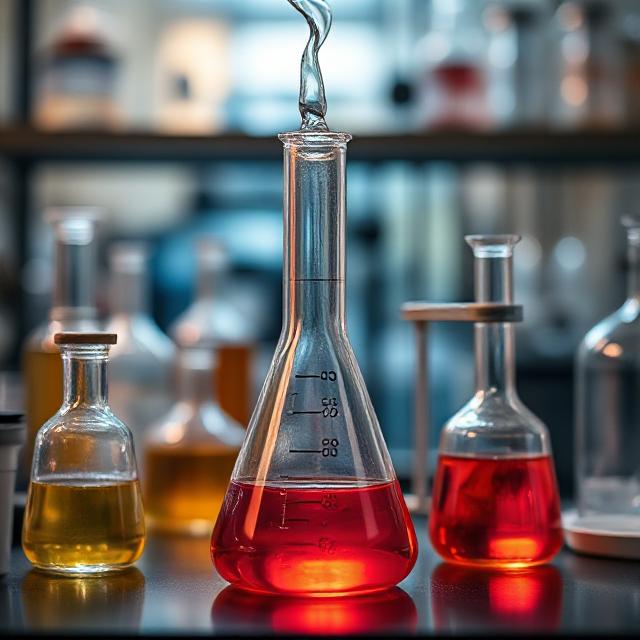


Laboratory glassware is essential for accurate scientific experiments and chemical analysis.
Laboratory glassware is essential for accurate scientific experiments and chemical analysis. Among the most iconic tools found in labs worldwide is the flask with a wide base tapering into a narrow neck. Commonly referred to as either a conical flask or an Erlenmeyer flask, these terms often raise questions—are they interchangeable, or do they refer to different pieces of equipment?
Let’s dive into the features, uses, and subtle distinctions of these flasks—and how India’s Erlenmeyer flask manufacturers are meeting the rising demand for quality lab glassware.
The conical flask is a standard piece of lab equipment known for its tapered shape—broad at the base and narrow at the top. This structure is highly functional, allowing users to mix contents by swirling without the risk of spilling. The flat bottom ensures stability on lab benches, while the narrow neck accommodates stoppers, covers, or seals like parafilm for secure storage.
Its design is ideal for uniform heating, which makes it a go-to tool in chemical laboratories, pharmaceutical testing, microbiological research, and academic setups.
The Erlenmeyer flask, invented in 1860 by German chemist Emil Erlenmeyer, features the same cone-like structure as the conical flask. It was a breakthrough at the time, offering a safer and more versatile alternative to open-mouthed beakers.
While the name “Erlenmeyer flask” is commonly used in the United States and other Western countries, regions such as the UK, India, and other Commonwealth nations typically use the term “conical flask.” Despite the different labels, both refer to the same tool.
Functionally, there is no technical difference between a conical flask and an Erlenmeyer flask. The terms are synonymous—the main distinction lies in geographical and linguistic preferences:
“Erlenmeyer flask” is the term of choice in the U.S. and Western scientific literature.
“Conical flask” is favored in countries following British English, including India and the UK.
Regardless of terminology, the flask’s design and purpose remain consistent across the globe.
No matter what they’re called, these flasks serve a wide range of scientific functions:
Titration: The narrow neck minimizes splashing during the mixing of solutions.
Microbial Culturing: Frequently used in microbiology for growing bacteria or fungi in shaking incubators.
Safe Storage: The design allows for sealed storage and transport of liquids.
Heating Solutions: Ideal for heating liquids evenly, thanks to the flask’s wide, stable base.
With their broad utility, it’s clear why demand for high-grade flasks has spurred a thriving industry of Erlenmeyer flask manufacturers in India.
India has become a major production center for scientific glassware, including conical flasks. Indian manufacturers serve a wide variety of clients, from school and college labs to pharmaceutical firms and chemical plants.
Leading manufacturers emphasize precision, durability, and adherence to global standards like ISO and ASTM. Many have upgraded their facilities with advanced technologies such as automated flame polishing, borosilicate glass processing, and strict quality control protocols.
In addition to standard models, they also offer custom-made flasks with options for specific volumes, graduation markings, or customized neck sizes, catering to diverse research needs.
Whether buying locally or sourcing from established Indian manufacturers, consider these factors when selecting a high-quality flask:
Glass Type: Borosilicate glass offers excellent resistance to heat and chemicals.
Measurement Accuracy: Ensure clearly marked and accurate volume graduations.
Build Quality: Look for smooth finishes and consistent wall thickness for better durability.
Thermal Stability: Choose flasks that can handle rapid temperature changes.
Certifications: Check for compliance with recognized safety and quality standards.
In essence, conical flask and Erlenmeyer flask are different names for the same indispensable lab tool. While the terminology varies across regions, their role in scientific inquiry remains universal.
Thanks to the strong presence of skilled Erlenmeyer flask manufacturers in India, laboratories around the world can access reliable and high-quality glassware that supports innovation, research, and safety. Whether you’re conducting titrations, cultivating cultures, or simply storing solutions, the right flask—no matter the name—makes all the difference.
